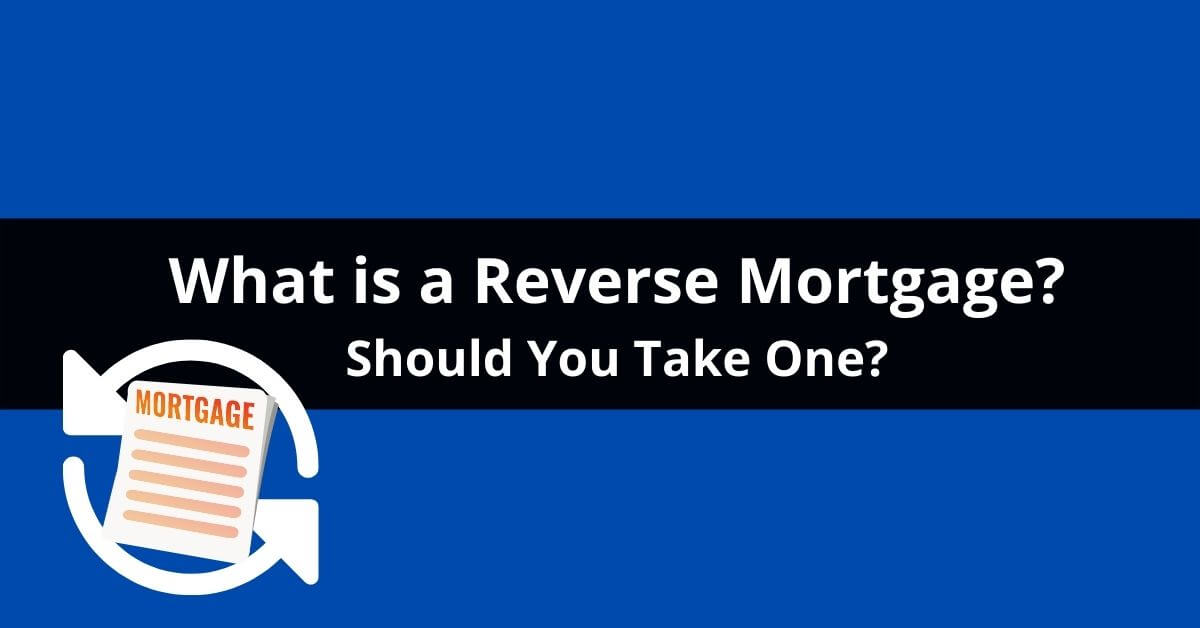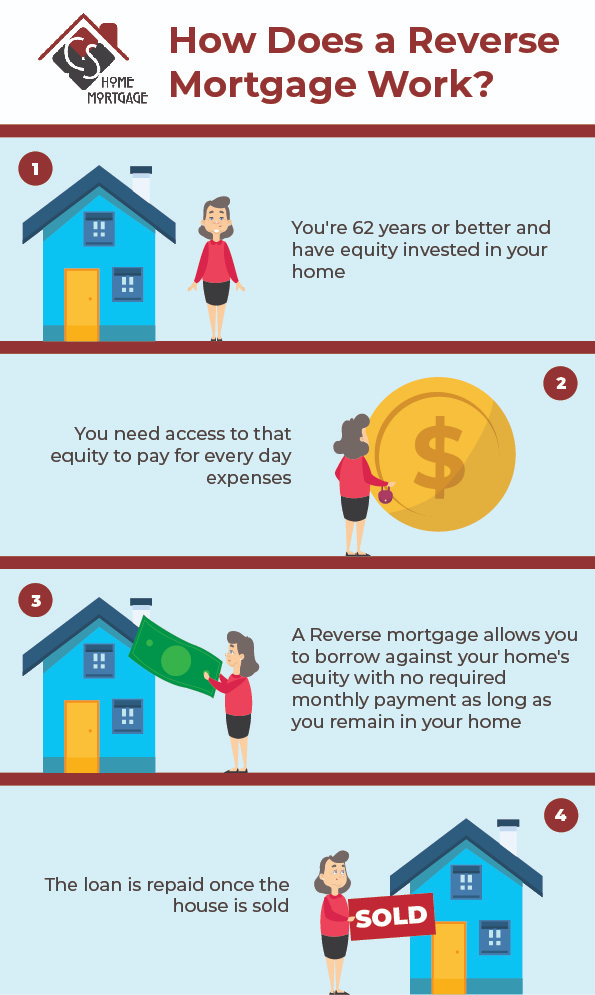Empower Your Retirement: The Smart Method to Acquisition a Reverse Home Loan
As retirement strategies, numerous individuals seek effective techniques to enhance their economic freedom and health. Amongst these approaches, a reverse home loan arises as a practical choice for property owners aged 62 and older, enabling them to tap right into their home equity without the need of monthly settlements.
Recognizing Reverse Home Loans
Comprehending reverse home mortgages can be crucial for property owners seeking economic flexibility in retired life. A reverse home mortgage is a financial item that enables qualified home owners, usually aged 62 and older, to transform a part of their home equity right into cash money. Unlike traditional home loans, where consumers make monthly payments to a loan provider, reverse mortgages enable homeowners to receive settlements or a round figure while preserving ownership of their residential property.
The amount offered through a reverse mortgage depends upon a number of aspects, including the property owner's age, the home's value, and existing rate of interest prices. Significantly, the lending does not need to be repaid until the homeowner sells the home, vacates, or dies.
It is vital for potential customers to recognize the implications of this financial product, including the effect on estate inheritance, tax considerations, and continuous responsibilities associated with residential property maintenance, taxes, and insurance coverage. Furthermore, counseling sessions with certified experts are commonly needed to make sure that borrowers fully comprehend the terms of the funding. Generally, a detailed understanding of reverse home mortgages can empower house owners to make enlightened decisions concerning their monetary future in retirement.
Benefits of a Reverse Mortgage
A reverse home mortgage uses several compelling benefits for eligible home owners, particularly those in retirement. This monetary device enables seniors to transform a portion of their home equity right into money, offering vital funds without the requirement for regular monthly home mortgage settlements. The money acquired can be made use of for various objectives, such as covering medical costs, making home renovations, or supplementing retired life income, thus improving overall financial adaptability.
One substantial advantage of a reverse home loan is that it does not need settlement up until the property owner moves out, sells the home, or dies - purchase reverse mortgage. This feature allows retirees to maintain their way of life and satisfy unanticipated costs without the concern of regular monthly payments. In addition, the funds obtained are normally tax-free, permitting property owners to use their money without fear of tax ramifications
Moreover, a reverse home loan can offer assurance, knowing that it can function as a financial security net during tough times. Property owners also keep ownership of their homes, ensuring they can proceed staying in an acquainted setting. Eventually, a reverse mortgage can be a strategic funds, encouraging senior citizens to handle their funds effectively while appreciating their gold years.
The Application Refine
Navigating the application process for a reverse home mortgage is an important step for property owners considering this economic choice. The initial stage includes evaluating qualification, which generally needs the home owner to be at the very least 62 years old, own the home outright or have a low mortgage equilibrium, and inhabit the home as their key home.
When qualification is verified, homeowners need to go through a therapy session with a HUD-approved therapist. This session guarantees that they completely recognize the effects of a reverse home mortgage, consisting of the responsibilities entailed. purchase reverse mortgage. After completing therapy, applicants can proceed to collect necessary documentation, consisting of proof of revenue, properties, and the home's value
The next step involves sending an application to a lending institution, who will assess the financial and building certifications. An appraisal of the home will also be carried out to determine its market price. If approved, the loan provider will certainly offer lending terms, which need to be reviewed carefully.
Upon acceptance, the closing procedure adheres to, where last records are signed, and funds are disbursed. Comprehending each stage of this application procedure can significantly boost the property owner's confidence and decision-making regarding reverse home mortgages.

Trick Considerations Prior To Purchasing
Getting a reverse home loan is a considerable financial choice that needs mindful factor to consider of a number of crucial More Bonuses aspects. Initially, comprehending your qualification is crucial. Homeowners must go to least 62 years of ages, and the home needs to be their primary home. Evaluating your financial needs and objectives is similarly essential; figure out whether a reverse mortgage straightens with your lasting strategies.

A reverse home loan can influence have a peek at these guys your eligibility for specific government advantages, such as Medicaid. By thoroughly reviewing these factors to consider, you can make an extra enlightened decision regarding whether a reverse home loan is the appropriate monetary technique for your retirement.
Making the Most of Your Funds
When you have actually secured a reverse mortgage, properly managing the funds comes to be a priority. The adaptability of a reverse home mortgage permits house owners to utilize the funds in various means, but calculated planning is important to optimize their benefits.
One essential technique is to create a budget that details your financial goals and month-to-month costs. By recognizing required expenses such as health care, property tax obligations, and home maintenance, you can allot funds as necessary to make certain check out this site long-term sustainability. Furthermore, take into consideration utilizing a section of the funds for financial investments that can create earnings or appreciate over time, such as common funds or dividend-paying supplies.
An additional vital facet is to keep a reserve. Setting apart a book from your reverse mortgage can aid cover unanticipated costs, providing comfort and economic security. Consult with a financial expert to check out possible tax obligation effects and exactly how to incorporate reverse mortgage funds right into your overall retired life method.
Eventually, sensible monitoring of reverse mortgage funds can improve your financial protection, allowing you to appreciate your retirement years without the stress and anxiety of economic unpredictability. Careful preparation and notified decision-making will make sure that your funds function successfully for you.
Conclusion
Finally, a reverse home mortgage offers a feasible monetary approach for elders looking for to enhance their retirement experience. By transforming home equity into obtainable funds, people can address essential costs and secure extra monetary sources without sustaining regular monthly settlements. Cautious factor to consider of the connected terms and ramifications is crucial to optimize advantages. Ultimately, leveraging this monetary device can promote higher independence and boost overall quality of life throughout retired life years.
Recognizing reverse home mortgages can be crucial for property owners looking for monetary adaptability in retirement. A reverse home mortgage is a monetary product that allows eligible property owners, commonly aged 62 and older, to convert a part of their home equity into money. Unlike traditional home mortgages, where customers make monthly repayments to a lender, reverse home mortgages enable property owners to get repayments or a lump sum while preserving possession of their building.
On the whole, a thorough understanding of reverse home loans can empower homeowners to make educated choices regarding their monetary future in retirement.
Consult with a financial advisor to explore possible tax obligation effects and just how to integrate reverse home mortgage funds right into your total retirement approach.